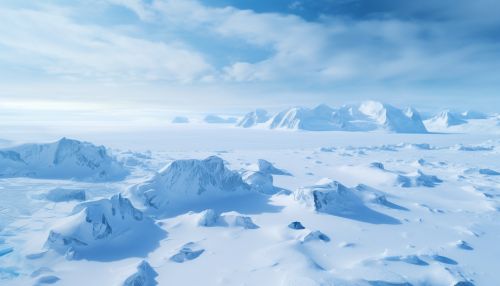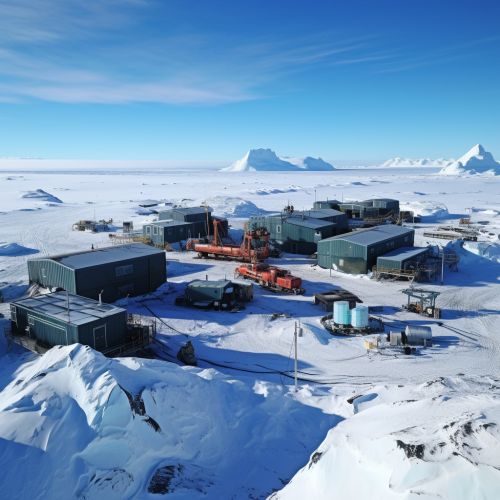West Antarctica
Geography
West Antarctica, or Lesser Antarctica, constitutes the western portion of the Antarctic continent. It is separated from East Antarctica by the Transantarctic Mountain Range. The region is primarily composed of the Antarctic Peninsula and the Ellsworth Land, Marie Byrd Land, and Ellsworth Mountains.


West Antarctica is largely covered by the West Antarctic Ice Sheet, a significant body of ice that is currently undergoing rapid change. The ice sheet is characterized by its marine-based configuration, with the ice sheet's base lying below sea level. This configuration makes the ice sheet particularly vulnerable to the effects of climate change.
Climate
The climate of West Antarctica is largely influenced by its position within the Antarctic Circumpolar Current, the world's largest ocean current. This current effectively isolates Antarctica from the warmer oceanic temperatures of the north, contributing to the continent's extreme cold conditions. West Antarctica experiences a colder and windier climate than East Antarctica due to its higher elevation and its exposure to cold air masses from the Southern Ocean.
Flora and Fauna
Despite the harsh climate, West Antarctica is home to a variety of wildlife. The coastal areas support populations of seals and penguins, while the open ocean is a vital feeding ground for whales. The region's flora is limited to hardy species such as mosses and lichens, which can survive the extreme conditions.
Research and Exploration
West Antarctica has been a focal point for scientific research and exploration. The United States Antarctic Program operates several research stations in the region, including the Amundsen-Scott South Pole Station and the McMurdo Station. Research in West Antarctica is focused on understanding the region's climate history, ice dynamics, and the impact of human-induced climate change.


Environmental Concerns
The rapid melting of the West Antarctic Ice Sheet is a major environmental concern. Studies have shown that the ice sheet is losing mass at an accelerating rate, contributing to global sea-level rise. The loss of ice from West Antarctica is largely driven by the warming of the Southern Ocean, which is causing the ice sheet's grounding line to retreat.
